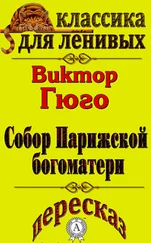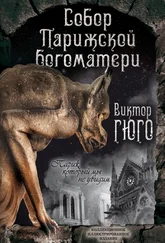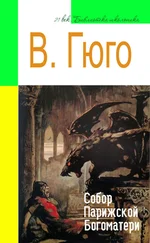| "I have lost my copy books. |
- Я потерял свои тетради. |
| "Where are you in your Latin humanities?" |
- Кого из латинских писателей ты изучаешь? |
| "My copy of Horace has been stolen." |
- У меня украли мой экземпляр Горация. |
| "Where are you in Aristotle?" |
- Что вы прошли из Аристотеля? |
| "I' faith! brother what father of the church is it, who says that the errors of heretics have always had for their lurking place the thickets of Aristotle's metaphysics? |
- А вспомни, братец, кто из отцов церкви утверждает, что еретические заблуждения всех времен находили убежище в дебрях аристотелевской метафизики? |
| A plague on Aristotle! |
Плевать мне на Аристотеля! |
| I care not to tear my religion on his metaphysics." |
Я не желаю, чтобы его метафизика поколебала мою веру. |
| "Young man," resumed the archdeacon, "at the king's last entry, there was a young gentleman, named Philippe de Comines, who wore embroidered on the housings of his horse this device, upon which I counsel you to meditate: Qui non laborat, non manducet." |
- Молодой человек! - сказал архидьякон. - Во время последнего въезда короля в город у одного из придворных, Филиппа де Комина, на попоне лошади был вышит его девиз: Qui поп laborat, non manducet. Поразмыслите над этим. |
| The scholar remained silent for a moment, with his finger in his ear, his eyes on the ground, and a discomfited mien. |
Опустив глаза и приложив палец к уху, школяр с сердитым видом помолчал с минуту. |
| All at once he turned round to Claude with the agile quickness of a wagtail. |
Внезапно, с проворством трясогузки, он повернулся к Клоду: |
| "So, my good brother, you refuse me a sou parisis, wherewith to buy a crust at a baker's shop?" |
- Итак, любезный брат, вы отказываете мне даже в одном жалком су, на которое я могу купить кусок хлеба у булочника? |
| "Qui non laborat, non manducet." |
- Qui non laborat, non manducet. |
| At this response of the inflexible archdeacon, Jehan hid his head in his hands, like a woman sobbing, and exclaimed with an expression of despair: |
При этом ответе неумолимого архидьякона Жеан закрыл лицо руками, словно рыдающая женщина, и голосом, исполненным отчаяния, воскликнул: otototototoi! |
| "Orororororoi." "What is the meaning of this, sir?" demanded Claude, surprised at this freak. |
- Что это значит, сударь? - изумленный выходкой брата, спросил Клод. |
| "What indeed!" said the scholar; and he lifted to Claude his impudent eyes into which he had just thrust his fists in order to communicate to them the redness of tears; "'tis Greek! 'tis an anapaest of AEschylus which expresses grief perfectly." |
- Извольте, я вам скажу! - отвечал школяр, подняв на него дерзкие глаза, которые он только что натер докрасна кулаками, чтобы они казались заплаканными. - Это по-гречески! Это анапест Эсхила, отлично выражающий отчаяние. |
| And here he burst into a laugh so droll and violent that it made the archdeacon smile. |
И тут он разразился таким задорным и таким раскатистым хохотом, что заставил улыбнуться архидьякона. |
| It was Claude's fault, in fact: why had he so spoiled that child? |
Клод почувствовал свою вину: зачем он так баловал этого ребенка? |
| "Oh! good Brother Claude," resumed Jehan, emboldened by this smile, "look at my worn out boots. |
- Добрый братец! - снова заговорил Жеан, ободренный этой улыбкой. Взгляните на мои дырявые башмаки! |
| Is there a cothurnus in the world more tragic than these boots, whose soles are hanging out their tongues?" |
Ботинок, у которого подошва просит каши, ярче свидетельствует о трагическом положении героя, нежели греческие котурны. |
| The archdeacon promptly returned to his original severity. |
К архидьякону быстро вернулась его суровость. |
| "I will send you some new boots, but no money." |
- Я пришлю тебе новые башмаки, но денег не дам, - сказал он. |
| "Only a poor little parisis, brother," continued the suppliant Jehan. "I will learn Gratian by heart, I will believe firmly in God, I will be a regular Pythagoras of science and virtue. |
- Ну хоть одну жалкую монетку! - умолял Жеан. -Я вызубрю наизусть Грациана, я буду веровать в бога, стану истинным Пифагором по части учености и добродетели. |
| But one little parisis, in mercy! |
Но, умоляю, хоть одну монетку! |
| Would you have famine bite me with its jaws which are gaping in front of me, blacker, deeper, and more noisome than a Tartarus or the nose of a monk?" |
Неужели вы хотите, чтобы разверстая передо мной пасть голода, черней, зловонней и глубже, чем преисподняя, чем монашеский нос, пожрала меня? |
| Dom Claude shook his wrinkled head: |
Клод, нахмурившись, покачал головой: |
| "Qui non laborat-" |
- Qui поп laborat... |
| Jehan did not allow him to finish. |
Жеан не дал ему договорить. |
| "Well," he exclaimed, "to the devil then! |
- Ах так! - крикнул он. - Тогда к черту все! |
| Long live joy! |
Да здравствует веселье! |
| I will live in the tavern, I will fight, I will break pots and I will go and see the wenches." |
Я засяду в кабаке, буду драться, бить посуду, шляться к девкам! |
| And thereupon, he hurled his cap at the wall, and snapped his fingers like castanets. |
Он швырнул свою шапочку о стену и прищелкнул пальцами, словно кастаньетами. |
| The archdeacon surveyed him with a gloomy air. |
Архидьякон сумрачно взглянул на него: |
| "Jehan, you have no soul." |
- Жеан! У вас нет души. |
| "In that case, according to Epicurius, I lack a something made of another something which has no name." |
- В таком случае у меня, если верить Эпикуру, отсутствует нечто, состоящее из чего-то, чему нет имени! |
| "Jehan, you must think seriously of amending your ways." |
- Жеан! Вам следует серьезно подумать о том, как исправиться. |
| "Oh, come now," cried the student, gazing in turn at his brother and the alembics on the furnace, "everything is preposterous here, both ideas and bottles!" |
- Вздор! - воскликнул школяр, переводя взгляд с брата на реторты. Здесь все пустое - и мысли и бутылки! |
| "Jehan, you are on a very slippery downward road. |
- Жеан! Ты катишься по наклонной плоскости. |
| Do you know whither you are going?" |
Знаешь ли ты, куда ты идешь? |
| "To the wine-shop," said Jehan. |
- В кабак, - ответил Жеан. |
| "The wine-shop leads to the pillory." |
- Кабак ведет к позорному столбу. |
| "'Tis as good a lantern as any other, and perchance with that one, Diogenes would have found his man." |
- Это такой же фонарный столб, как и всякий другой, и, может быть, именно с его помощью Диоген и нашел бы человека, которого искал. |

![Виктор Гюго - Собор Парижской Богоматери [Notre-Dame de Paris]](/books/30985/viktor-gyugo-sobor-parizhskoj-bogomateri-notre-thumb.webp)
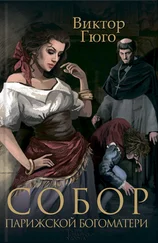
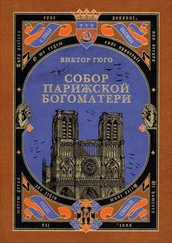
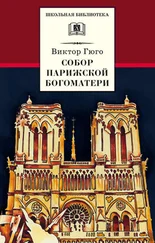
![Виктор Гюго - Собор Парижской Богоматери. Париж [сборник]](/books/398980/viktor-gyugo-sobor-parizhskoj-bogomateri-parizh-sbo-thumb.webp)
